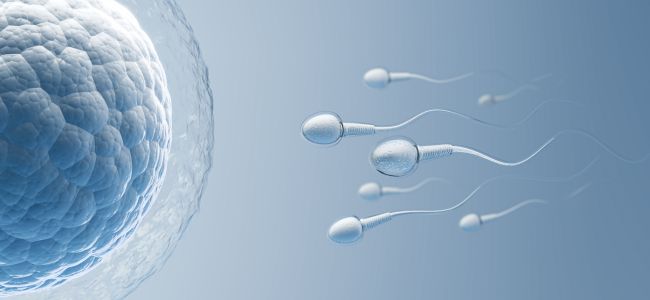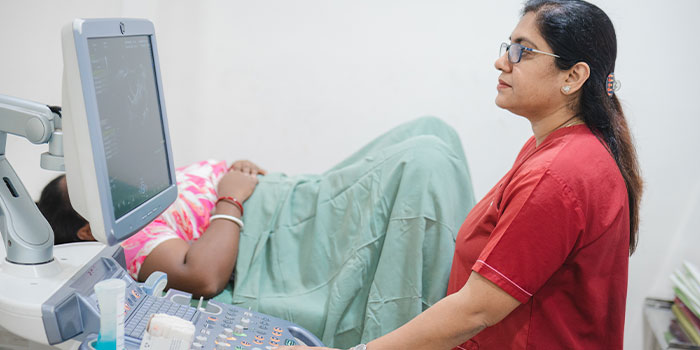

Male infertility refers to a health condition where a man is unable to impregnate a fertile woman after more than 12 months of regular and unprotected intercourse. According to a report published by the National Library of Medicine in 2019, male infertility cases globally were estimated to be more than 50 million, which is a more than 75% increase from 1990. Thus, male infertility is emerging as a major cause of health concern, which makes it important to educate people about the symptoms and causes of male infertility. It is only by becoming aware about causes of male infertility that people can take relevant measures to tackle this health condition.
This is a common cause of male infertility where a man faces difficulty in achieving or maintaining erections. Having a proper erection is necessary for sexual intercourse and natural insemination. Without proper erection, it becomes difficult for a man to impregnate a woman bec penetration relies massively upon the erection level.
The clinical name for low sex drive is libido, which can be caused by low testosterone levels in males. According to clinical research and medical studies, testosterone plays a vital role in promoting sex drive and healthy sperm production. Therefore, reduced libido can act as a significant indicator of male infertility in many cases.
If a male is experiencing issues, such as premature ejaculation, inability to ejaculate, or delayed ejaculation, then it might be an indicator of male infertility. It has been observed that ejaculation issues lead to low semen volume or the sperm not reaching the female partner's eggs.
Persistent fatigue, gynaecomastia, or reduced hair can be an indicator of hormonal imbalances, which in turn can lead to male infertility. It is a well-known fact that hormonal imbalances tend to affect sperm quality and production in men.
Changes in the colour of the semen or reduced thickness of the semen can be a potential indicator of male infertility. Thus, it is important to keep an eye on the semen quality and colour.
Pain or swelling in the testicles can indicate underlying issues with sperm production, which is again a major cause of male infertility and may be linked to infections, injuries, hormonal disorders, or other medical conditions.
If you notice any of these symptoms, then you should seek consultation from an experienced IVF specialist near you, because a delay in diagnosis reduces the chances of the treatment's success.
Here are some of the most common causes of infertility in males:

Low sperm count (oligospermia), abnormal sperm shape (morphology), or poor sperm movement (motility) can contribute to male infertility. Sometimes, genetic conditions can lead to such sperm issues. On the other hand, infection can also cause sperm issues. Thus, there is a strong relation between male infertility and sperm issues.

The three primary hormones that are responsible for maintaining fertility in men are testosterone, Lutenising Hormone (LH), and Follicle-Stimulating Hormone (FSH). However, the presence of excessive or inadequate levels of these hormones can hamper sperm quality and production. Thus, imbalances in these hormones can cause infertility in males.

There might be blockages in the nerves due to certain operations or birth defects, which can hamper the ability to achieve an erection. On the other hand, enlarged veins in the scrotum, also known as varicocele, can cause increased temperature in the testicle. This is a common condition that hampers sperm production in males, which leads to male infertility.

Sexually transmitted infections (STIs), such as gonorrhea and chlamydia, can cause inflammation, which in turn can lead to infertility by causing blockages in the reproductive tract. Thus, it is important to remain aware and careful about STIs, which are a major cause of male infertility as well.

Men who are addicted to smoking and drink heavily are prone to damaged sperm health. According to clinical studies and research, smoking and drinking are major factors behind poor sperm motility and abnormal sperm morphology. In addition, obesity, unhealthy food choices, or exposure to radiation and toxins can cause male infertility.
Here are some of the most prominent ways by which a male can improve his fertility:

Body Mass Index (BMI) plays a vital role in determining sperm production and quality. It is advisable to consult a top fertility clinic in Siliguri or any location of your convenience to determine the best BMI according to individual height. Not being overweight or underweight is the key to maintaining a healthy sperm production as well as quality.

Regular and effective exercise tremendously helps in boosting testosterone levels, which is crucial for improved sperm production and quality. However, intense workouts can sometimes hamper the sperm quality due to causing hormonal disruptions.

Male fertility can be maintained and improved by eating diets consisting of antioxidants, omega-3 fatty acids, and zinc. These nutrients can be received from coloured fruits and vegetables, along with fish, chicken, and nuts. It is advisable to avoid processed goods, soya, and trans fats because these foods hamper fertility.

It is a well-known fact that high temperature hampers sperm quality and production. Thus, by minimising saunas and hot tubs, male fertility can be improved to a certain extent.

It is advisable to sleep for 7-8 hours to improve sperm quality and production. In addition, stress management is crucial because high stress can release cortisol, which hampers sperm health.
Newlife Fertility Center earned a massive reputation for being one of the best fertility clinics in Siliguri by consistently delivering excellent outcomes in infertility treatment since 2015. We prioritise accurate diagnosis of infertility causes in both males and females by using advanced technologies. Our infertility treatment is highly patient-centred, which ensures the use of a customised approach as per unique fertility conditions.
Here are the top reasons to choose us for male infertility treatment and care: